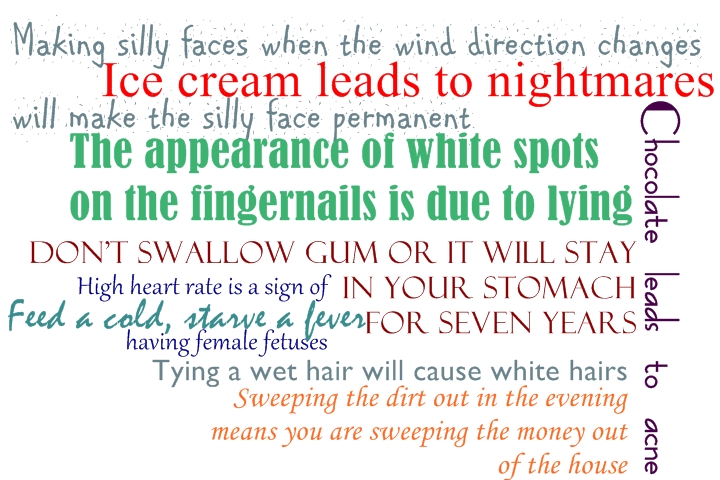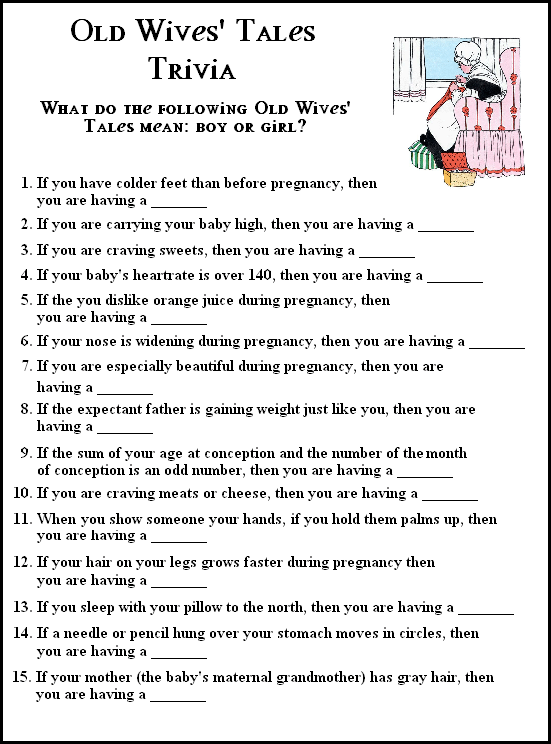Old wives' tale
As an old wives' tale is referred to in the presence of a widespread, but only apparent knowledge.
Historically, the term probably created in the 18th century is due to the habit of the nurses to tell the children they serve incredible stories ( fairy tales).
From " Gräuseln, so old wives' tales in later evening time the kids to bed hunt ", Kant speaks of 1798 as a sublime feeling.
The old wives' tale had - in addition to the educational and cultural aspects of preserving the oral tradition (see also tradition ) - often the function to entertain children through sensations and educate through intimidation to obedience. The scouts were such educational methods an eyesore, and they joined with the term always the negative connotation of the mediation of a superstitious view of the world.
Multiple uses Christoph Martin Wieland the expression, for example, "How? but not the Menippus from which tells us the ludicrous Damis in his travels of Apollonius the most absurd of all nursery tales ".
In a pedagogical lexicon of 1840 states: " If the children are made superstitious and fearful through fictional stories, nursery tales and ghost stories, they make teachers familiar with the laws of nature; because nothing can then heal safer than the knowledge of nature and its laws. "










